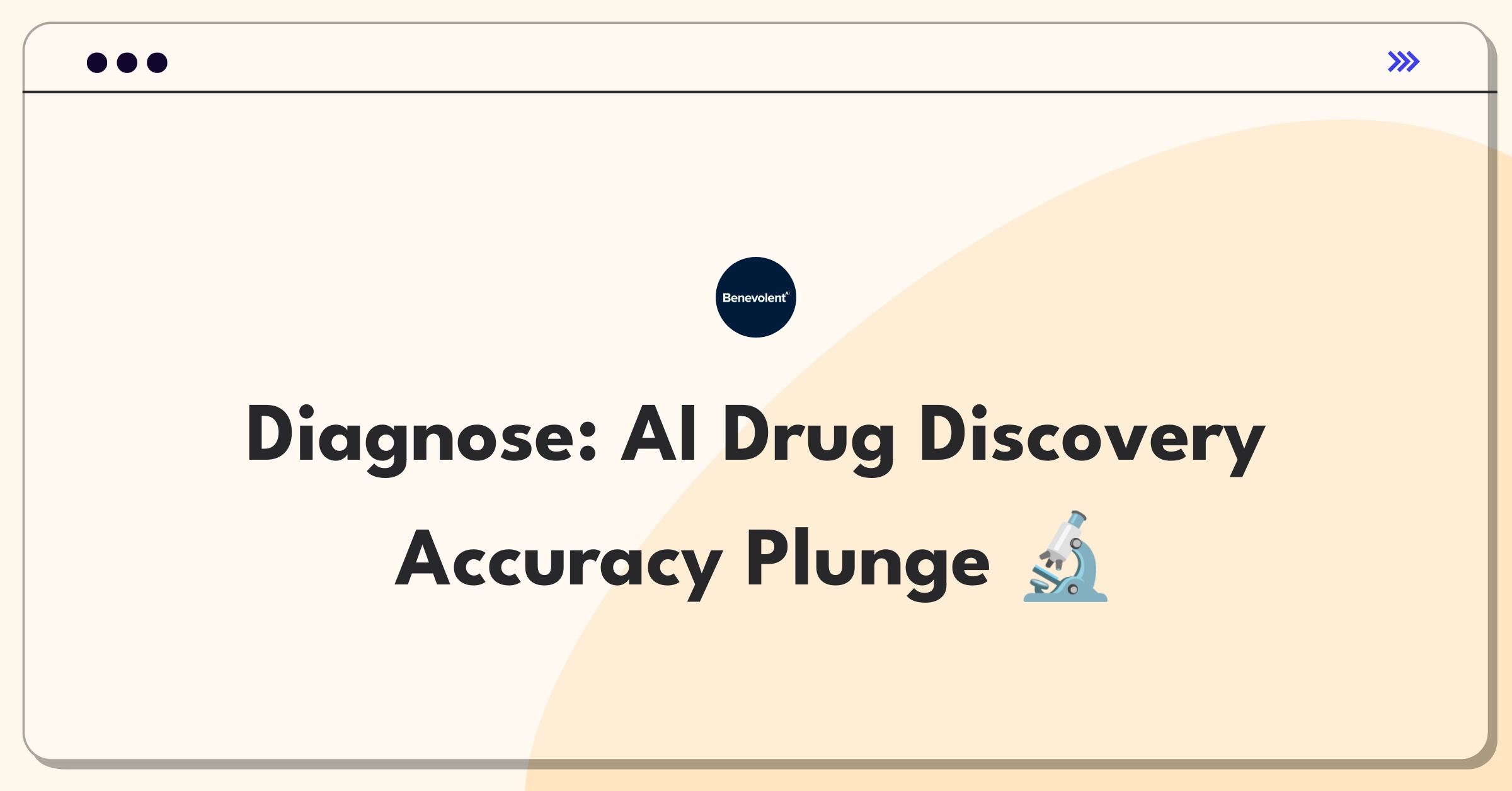Introduction
The recent 15% drop in accuracy of Benevolent AI's drug target prediction algorithm is a critical issue that demands immediate attention. This decline could significantly impact the company's core value proposition and potentially affect drug discovery timelines. I'll approach this problem systematically, focusing on identifying the root cause, validating hypotheses, and developing both short-term fixes and long-term solutions.
Framework overview
This analysis follows a structured approach covering issue identification, hypothesis generation, validation, and solution development.
Step 1
Clarifying Questions (3 minutes)
Why it matters: Recent changes could directly impact algorithm performance. Expected answer: Yes, there was a model update or data refresh. Impact on approach: If yes, we'd focus on the changes made; if no, we'd look at other factors.
Why it matters: Changes in data quality or composition could affect accuracy. Expected answer: No significant changes in data sources. Impact on approach: If changes occurred, we'd investigate data quality; if not, we'd look at other factors.
Why it matters: Understanding the normal variation helps determine if this is an anomaly. Expected answer: Accuracy was typically 85-90%, measured through cross-validation. Impact on approach: This would help us set realistic goals for improvement.
Why it matters: External benchmarks could influence our perception of performance. Expected answer: No significant industry changes. Impact on approach: If changes occurred, we'd need to reassess our metrics; if not, we focus internally.
Why it matters: User feedback could point to specific areas of decline. Expected answer: Some reports of inaccuracies in rare disease targets. Impact on approach: This would guide our investigation towards specific prediction types.
Subscribe to access the full answer
Monthly Plan
The perfect plan for PMs who are in the final leg of their interview preparation
$99 /month
- Access to 8,000+ PM Questions
- 10 AI resume reviews credits
- Access to company guides
- Basic email support
- Access to community Q&A
Yearly Plan
The ultimate plan for aspiring PMs, SPMs and those preparing for big-tech
$99 $33 /month
- Everything in monthly plan
- Priority queue for AI resume review
- Monthly/Weekly newsletters
- Access to premium features
- Priority response to requested question


.png)